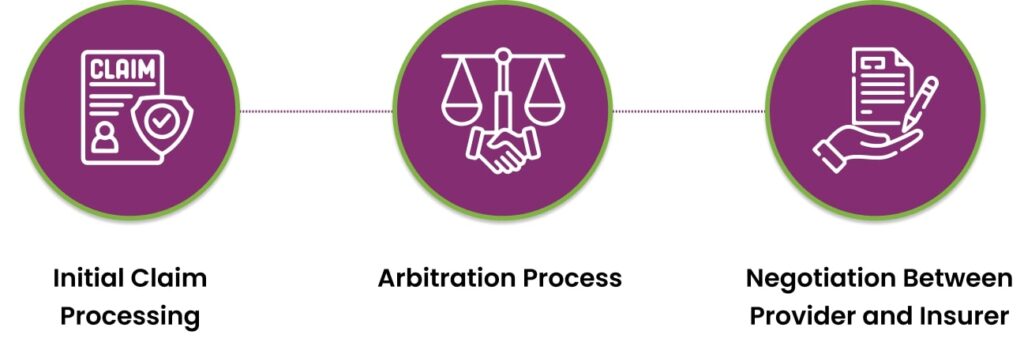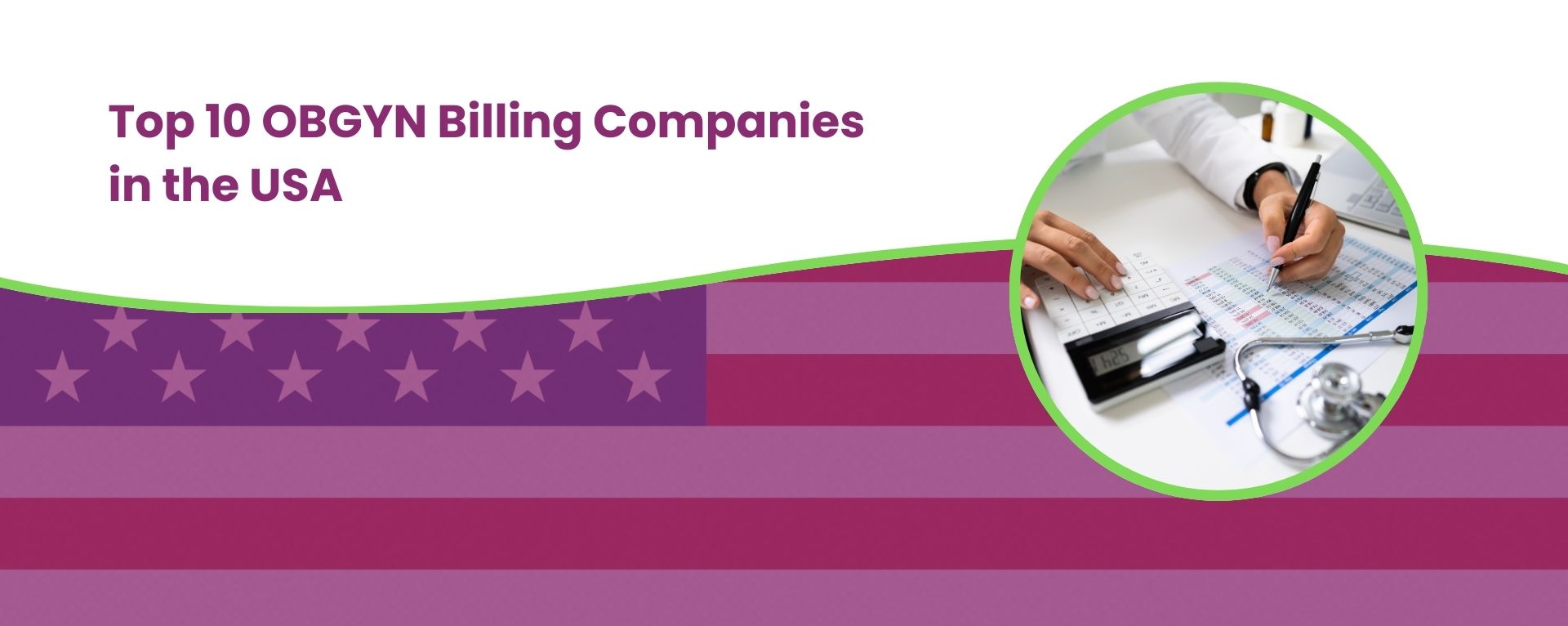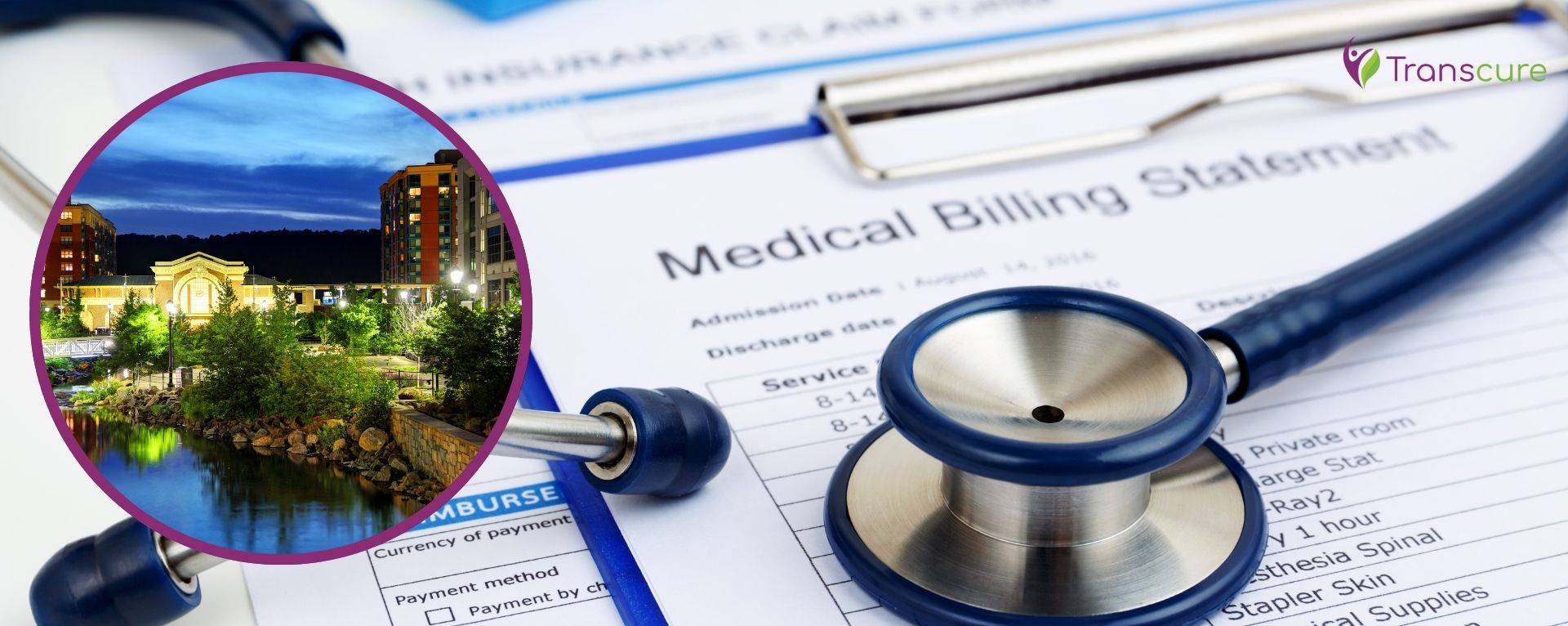Surprise medical bills remain a serious problem in New Jersey. In fact, a 2018 Rutgers survey found that about 14% of NJ adults, roughly 428,000 families, reported receiving an unexpected large medical bill in the past year. Often these charges come when patients thought they were using in-network providers, but an out-of-network (OON) doctor or facility was involved.
Balance billing occurs when an out-of-network provider bills you for the difference between the insurer’s payment and the provider’s full charge. For example, if a patient goes to an in-network hospital and is treated by an OON anesthesiologist, that doctor might bill the patient for thousands of dollars.
Fortunately, New Jersey has enacted strong new laws to protect patients from surprise bills. This article explains the New Jersey Balance Billing Law in detail. Read on for a detailed guide that will leave you well-prepared for balance billing rules with the help of the best New Jersey billing company.

Table of Contents
Toggle- What Is New Jersey’s Balance Billing Law?
- How Does NJ Balance Billing Law Protect Patients?
- Who Is Covered Under New Jersey Surprise Billing Protections?
- Which Out-of-Network Services Does the NJ Balance Billing Law Apply To?
- How Does NJ Out‑of‑Network Billing Law Differ from the Federal No Surprises Act?
- How Are Disputes Handled Under New Jersey Balance Billing Arbitration Process?
- What Penalties Can Providers Face for Violating New Jersey Surprise Billing Rules?
- How NJ Medical Billing Companies Help You Navigate Balance Billing Requirements?
- Conclusion
- Frequently Asked Questions (FAQs)
What Is New Jersey’s Balance Billing Law?
New Jersey’s balance billing law is also known as the Out-of-network Consumer Protection, Transparency, Cost Containment and Accountability Act (P.L. 2018, c. 32.) This law was signed on June 1, 2018 and took effect August 30, 2018.
It was initially designed to stop the common practice of surprise billing patients for involuntary out-of-network charges. Its rules dramatically reduce the risk of surprise bills. By capping patient liability at in-network cost-sharing for emergencies and involuntary OON services, the law holds patients harmless from most surprise charges.
How Does NJ Balance Billing Law Protect Patients?
Some of the key protections of NJ balance billing law include the following points:
Cap on Patient Cost-Sharing
In emergencies or truly inadvertent situations, patients pay no more than their in-network copayment. The law explicitly forbids balance billing a patient beyond those amounts. In practice, if an OON provider treats an emergency patient, the provider can only collect the same copay/coinsurance that an in-network provider would have collected.
Full Disclosure and Consent for Elective Care
For scheduled (non-emergency) procedures, the provider or facility must inform the patient in advance if the provider is OON. A written notice must be signed for the patient to knowingly receive out-of-network services. So, without getting consent from the patient, New Jersey medical billing companies can’t give surprise bills.
Assignment of Benefits
When an emergency OON service occurs, the patient’s insurance benefits automatically assign to the out-of-network provider. This means the provider must submit claims directly to the insurer and cannot shift bills to the patient.
Dispute Resolution
If the insurer and provider cannot agree on payment for a covered emergency claim, either party may initiate a binding arbitration. Under this system, each side submits a final offer, and the neutral arbitrator selects one of them. Arbitration can only start if the difference between the insurer’s payment and the provider’s charge exceeds 1,000 dollars.
Who Is Covered Under New Jersey Surprise Billing Protections?
In general, the New Jersey surprise billing law applies to health benefit plans delivered or issued in NJ by licensed carriers, including:
- Fully Insured Commercial Plans: All group and individual health insurance policies issued by New Jersey insurers are covered. This includes New Jersey’s State Health Benefits and School Employees’ Health Benefits plans.
- Self-funded Plans: By default, New Jersey law does not bind self-funded plans. However, self-funded plans may voluntarily opt in to NJ’s arbitration rules. As of early 2021, over 130 NJ-area self-funded plans had chosen to participate.
Federally-funded programs like Medicare, Medicaid, and certain other plans are excluded from the balance billing NJ law. Within those covered plans, the protections apply to both emergency and non-emergency care in specific scenarios:
- Emergency Patients at Out-of-network Facilities: If a patient has an emergency medical condition and goes to an ER or urgent care, all of the hospital services related to stabilizing that patient are covered. The patient’s responsibility is capped at in-network copays and OON providers must accept the insurance payment.
- In-network Facility Patients with OON Ancillary Providers: This is often called the hidden provider or inadvertent OON situation. If a patient visits an in-network hospital, but specialists, such as anesthesiologists, are out-of-network, the patient is still protected.
- Inadvertent OON Laboratory Services: New Jersey expanded the concept of inadvertent OON to include lab testing. For example, if an in-network doctor orders lab work but the specimen is processed by an out-of-network lab, the patient still benefits from the law’s protections.

Which Out-of-Network Services Does the NJ Balance Billing Law Apply To?
Not all out-of-network situations are treated equally. New Jersey’s surprise law focuses on those most likely to catch patients off guard. The law specifically protects many ancillary specialties at in-network facilities, including:
- Anesthesiology
- Emergency medicine (including urgent care triage)
- Pathology and laboratory services
- Radiology and imaging
- Neonatology (newborn care)
- Assistant surgeon roles
- Hospitalists and intensivists (inpatient care doctors)
In these roles, if the provider is out-of-network, the patient’s maximum liability is the same cost-sharing amount they would have paid in-network.
How Does NJ Out‑of‑Network Billing Law Differ from the Federal No Surprises Act?
The federal No Surprises Act (NSA) took effect in January 2022 and offers similar protections nationwide. In many respects, it overlaps with New Jersey’s law, but there are important differences:
| Feature | NJ Balance Billing Law | Federal No Surprises Act |
|---|---|---|
| Plans Covered | All NJ fully insured plans and NJ public plans, including self-funded plans only if they opt in. | All non-grandfathered group & individual plans nationwide. |
| Protected Services | Emergency services, such as ancillary OON at in-network facilities and inadvertent lab services. | Emergency services, including ancillary OON at in-network facilities (broadly, unless patient opts out) |
| Pre-service Notice | Facilities and New Jersey providers must disclose network status and give estimates in advance of elective procedures. | Requires advanced EOBs and other estimates for scheduled services. |
| Dispute Resolution | State arbitration with 20-day carrier response, 30-day negotiation, then final-offer arbitration if more than $1,000 | Federal IDR with 30-day negotiation, then blind bid arbitration considering median in-network rate. |
| Waivers | No waiving patient cost-share as inducement under any circumstances. | Prohibits balance-billing waivers outside strict federal safe harbors. |
How Are Disputes Handled Under New Jersey Balance Billing Arbitration Process?
Even with protections in place, providers, medical billing services in New Jersey, and insurers may disagree on how much is reasonable to pay for an OON claim. NJ law sets out a specific timeline and process:

Step 1. Initial Claim Processing
When an out-of-network provider submits a claim, the insurer has 20 days to either pay it or reject it as excessive.
Step 2. Negotiation Between Provider and Insurer
If the insurer flags the claim, it must notify the provider. The provider then has 30 days to negotiate the payment amount with the insurer. Both parties are encouraged to come to a mutually agreeable figure through good-faith negotiation.
Step 3. Arbitration Process
When negotiations fail and the payment difference is $1,000 or more, either side may demand binding arbitration. During this process, both New Jersey provider and carrier present their final payment offers, along with supporting documents.
Importantly, the arbitrator cannot split the difference or compromise, as they must choose one side’s offer as the award. The loser pays the arbitration fees, but current NJ rules state each party pays its own arbitrator fee.
The arbitrator’s decision is final and binding on both parties. The insurer must pay the selected amount to the provider, who in turn cannot bill the patient beyond that.
What Penalties Can Providers Face for Violating New Jersey Surprise Billing Rules?
New Jersey takes enforcement seriously. Providers, NJ medical billing services providers, and insurers that violate the balance billing rules face penalties:
- The law authorizes fines up to $100 per violation for individual health professionals, and up to $1,000 per violation for hospitals, clinics, and carriers.
- Even though violations are daily, there is a cap, as no provider can be fined more than $25,000 per occurrence of non-compliance.
If a provider or facility violates the NJ balance billing law, the Department of Banking and Insurance will refer them for enforcement. Facilities may be investigated by the DOBI Commissioner, while non-compliant doctors can be reported to their licensing board.

How NJ Medical Billing Companies Help You Navigate Balance Billing Requirements?
New Jersey medical billing services providers, including Transcure, offer solutions to make NJ balance billing compliance seamless:
- Compliance Review and Gap Analysis: Their experts will audit your existing billing and scheduling practices to identify any vulnerabilities. They check that your patient forms and claim processes meet NJ requirements, and provide a detailed report of any gaps.
- Disclosure and GFE Management: These NJ billing companies help you implement efficient workflows for all required notices. For example, Transcure can assist with generating and tracking Good Faith Estimates for uninsured patients, and ensure that OON disclosures are captured in your billing system.
- Claims Negotiation: When an out-of-network claim arises, their negotiators and legal-affiliated partners can handle the back-and-forth with payers. They prepare documentation and arbitrate on your behalf if needed.
- Ongoing Training and Audits: These companies provide periodic training sessions for your staff on the latest billing rules. Transcure also conducts regular internal audits of claims to catch any compliance issues early.
- Dedicated NJ Expertise: Some experienced NJ billing service providers, such as Transcure, are deeply familiar with New Jersey’s specific laws. We act as an extension of your practice, so you can focus on patient care.
Conclusion
All in all, the New Jersey balance billing law protects patients from unexpected out-of-network charges during emergencies. For healthcare providers, this law demands clear pre-service disclosures and strict compliance with arbitration and billing rules. It differs from the federal No Surprises Act in key areas, making state-specific knowledge essential.
Violations can result in hefty penalties, so implementing automated checks and audit workflows become crucial. Outsourced medical billing services in New Jersey, such as Transcure, can help ensure compliance with evolving regulations. Schedule your NJ billing compliance consultation with Transcure today to stay ahead.
Frequently Asked Questions (FAQs)
Is Balance Billing Illegal in New Jersey?
Yes, in many cases balance billing become illegal in NJ. Under the New Jersey Balance Billing Law, this type of billing becomes illegal for emergency care and inadvertent out-of-network services at in-network facilities. Patients are only responsible for in-network cost-sharing amounts. So, violations can lead to penalties for providers.
Can you fight New Jersey Balance Billing?
Absolutely, patients can dispute improper OON charges by filing a complaint with the New Jersey Department of Banking and Insurance (DOBI). If eligible, cases over $1,000 can enter binding arbitration through the law’s Independent Dispute Resolution (IDR) process.
How long does a doctor have to bill you in New Jersey?
In New Jersey, providers generally must submit claims within 180 days of the service date to insurers. For patient billing, timely billing varies, but delays beyond one year may be challengeable, especially under state law or payer policy.









